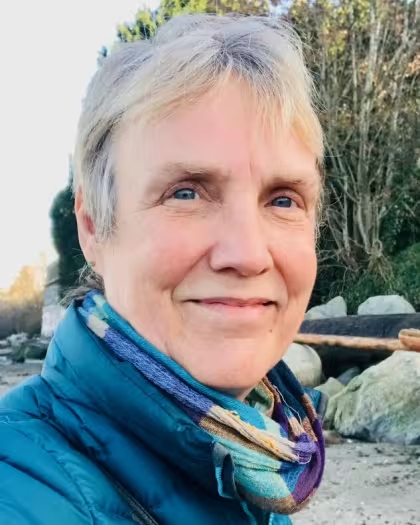Gunilla Öberg
Position
Guest Researcher
Affiliation
Research
Research
I am recognized for my groundbreaking research on chlorine biogeochemistry and my leadership in interdisciplinary research and education.
My research program deals with the production and use of science for policy, presently focusing on chemicals management. The questions that drive my present research program are:
- What kind of knowledge is needed, used and trusted?
- How does the knowledge used impact perceived solutions?
- How might we facilitate for decision makers and the public to ‘unpack’ assumptions, values and preferences that are embedded in such knowledge?
My research in higher education asks how to teach about science for policy. My book Interdisciplinary environmental studies – a primer is mandatory in graduate programs at the University of Californa, Berkley, Lancaster University, UK, Lund University, Sweden, and others.
Leadership
2006-2011. Director of the Institute for Resources, Environment and Sustainability, University of British Columbia Canada, which by external reviewers is assessed as one of the leading interdisciplinary environmental research centers in North America.
2004-2006. Founding director of the Center for Climate Science and Policy Research (CSPR) at Linköping University, Sweden, which uniquely integrates climate modelling, climate policy and social science.
Outreach
Video: Canadian Science Policy Center: Gunilla Oberg
Video: Tankesmedjan Fores: Gunilla Öberg kommenterar Barack Obamas installationstal (Gunilla Öberg comments Barack Obama's inaugural address).
Teaching
Publications
Academic article
- Schäffer, Andreas; Groh, Ksenia J.; Sigmund, Gabriel et al. (2023). Conflicts of Interest in the Assessment of Chemicals, Waste, and Pollution. (external link)
- McIlroy-Young, Bronwyn; Öberg, Gunilla; Leopold, Annegaaike (2021). The manufacturing of consensus: A struggle for epistemic authority in chemical risk evaluation. (external link)
See a complete overview of publications in Cristin.
Research monographs
Öberg, Gunilla, 2011. Interdisciplinary environmental studies – a primer. Blackwell & Wiley. A guidebook for graduate students grappling with interdisciplinary studies. Mandatory at several graduate programs around the world (e.g. University of Californa, Berkley in the USA, Lancaster University in the UK , Lund University, Sweden) (cited 48 x)
Representative publications
McIlroy‐Young, Browyn; Leopold, Annegaaike and Öberg, Gunilla (2021), Science, consencus and endocrine-disrupting chemicals: Rethinking disagreement in expert deliberations. Integr Environ Assess Manag, 17: 480-481.
Vazquez, Marco, McIlroy‐Young, Bronwyn, Steel, Daniel, Giang, Amanda, Öberg, Gunilla (2021) Exploring scientists’ values by analyzing how they frame nature and uncertainty. Risk Analysis.
McIlroy-Young, Bronwyn; Öberg, Gunilla & Leopold, Annegaaike (2021) The manufacturing of consensus: A struggle for epistemic authority in chemical risk evaluation. Environmental Science & Policy. Volume 122, 25-34.
Gunilla Öberg, Geneviève S. Metson, Yusuke Kuwayama and Steven Conrad. 2020. Conventional Sewer Systems are too Time-Consuming, Costly and Inflexible to meet the Challenges of the 21st Century. Sustainability 2020,12, 6518 (over 100 full text views within one week of publication).
Contribution: Conceptualization, coordination of research, analysis and ms development
Gunilla Öberg, Kevin Elliot and Annegaaike Leopold 2019 Science is Political But should Not be Partisan. Integrated Environmental Assessment and Management 16: 6-7. (cited 2x)
Contribution: Conceptualization, coordination of ms development
Gunilla Oberg and Annegaaike Leopold 2019 On the role of review papers in the face of escalating publication rates – a case study of research on contaminants of emerging concern (CECs). Environment International 131: 104960 (cited 1x)
Contribution: Conceptualization and research, coordination of analysis and ms development
Sarah A. Mason-Renton, Marco Vazquez, Connor Robinson, Gunilla Öberg 2019 Science for policy: A case-study of scientific polarization, values, and the framing of risk and uncertainty. Risk Analysis 39 (6): 1229-1242 (cited 1x)
Contribution: Conceptualization of study, supervision of research, analysis and ms development (Mason-Renton: post-doc, Vazquez and Robinson MSc students)
Gunilla Oberg and Alice Campell 2019 Navigating the divide between scientific practice and science studies to support undergraduate teaching of epistemic knowledge. International Journal of Science Education 41(2):230-247 (cited 2x)
Contribution: Conceptualization, coordination of research, analysis and ms development
Gunilla Öberg and Sarah A. Mason-Renton. 2018. On the limitation of evidence-based policy: Regulatory narratives and land application of biosolids/sewage sludge in BC, Canada and Sweden. Environmental Science & Policy 84: 88-96. (cited 13x)
Contribution: Conceptualization, research, analysis and development of first draft.
Genevieve S. Metson, Steve M. Powers, Rebecca L. Hale, Jesse s. Sayles, Gunilla Öberg, G., Graham K. MacDonald, , … & Alexander F. Bowman 2018. Socio-environmental consideration of phosphorus flows in the urban sanitation chain of contrasting cities. Regional environmental change, 8:1 387–1401 (cited 17x)
Contribution: Group effort coordinated by Metson. Öberg contributed to conceptualization, analysis and ms development.
Margaret del Carmen Morales*, Leila Harris and Gunilla Öberg. 2014. Citizenshit – The Right to Flush and the UrbanSanitation Imaginary. Environment and Planning A 46: 2816 – 2833 (cited 47x)
Contribution: Supervision of research, analysis and ms development (Carmen Morales: MA student, Harris: co-supervisor)
Gunilla Öberg, M. Gabriela Merlinsky, Alicia LaValle, Margaret Morales, and M. Melina Tobias. 2014. The Notion of Sewage as Waste – On Institutional Inertia and Infrastructure Change in Buenos Aires, Argentina and Vancouver, Canada. Ecology and Society 19(2)19 (cited 20 times)
Contribution: Conceptualization, coordination of research, analysis and ms development.
Jacqueline A. Belzile and Gunilla Öberg 2012 Where to begin? Grappling with how to use participant interaction in focus group design. Qualitative Research 12 (4): 459-472 (cited 166x)
Contribution: Supervision of research, analysis and ms development (Belzile: MA student)
Projects
PI of the UBC project Science, Values and Wastewater Controversies, funded by the Canadian Social Science and Humanities Research Council (SSHRC).
Project goal: We are examining the relationship between the values held by scientific experts, their disciplinary identities and the evidence-based policies they recommend and exploring how embracing the diversity of values among experts can be used to strengthen the democratic process, focusing on controversies surrounding wastewater management.


